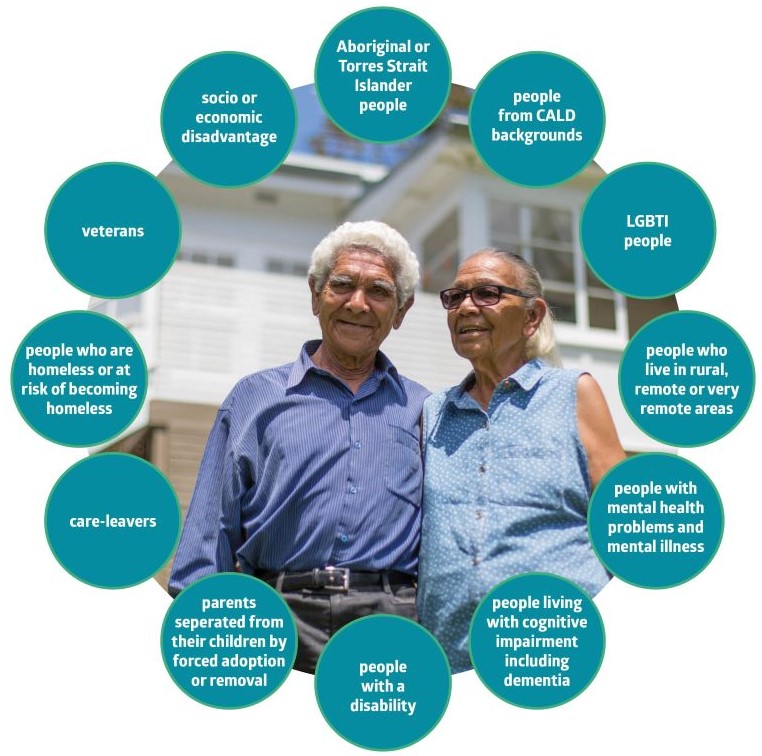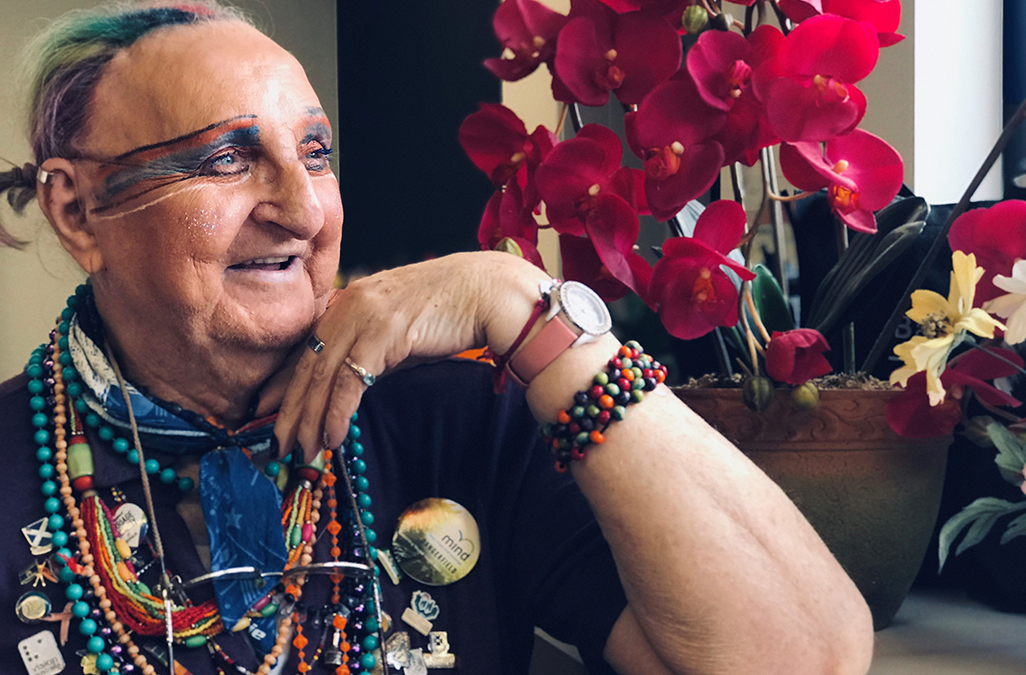Healthy@home clients share their diverse life stories
Having spent the first 21 years of her life in an orphanage, Michelle Rose Turnbull has no wish to go back to an institution in her senior years – and thankfully that’s unlikely to happen.
The 79-year-old, who is a well known character around New Farm where she has lived for more than two decades, continues to live alone in her apartment. She pursues interests in singing and her church, thanks to the team at Footprints Community.
Michelle was born Michael Charles Turnbull on 6 April 1942, and a month later was placed in the St Vincent’s Home for Children, better known as the Nudgee Orphanage. She knows the date as well as she does her birthday – 7 May 1942. And that was her home for the next 21 years.
“It was like Apartheid”
Michael started school at the age of 10 and endured a hard and often cruel childhood – “if you shrugged your shoulders or missed a note in singing you got a belting”.
There were hundreds of children of all ages, and boys were forbidden to speak to the girls.
“It was like Apartheid,” she says. “I couldn’t mix with the girls even though I wanted to be one. I could never tell the nuns that.”
Nevertheless, the orphanage was still better than the farm placements.
The vulnerable 14-year-old boy was first sent to a farm in Toowoomba and put on a horse. He fell off, was dragged across stony ground, and sent back to the orphanage.
“The second farm was in Beaudesert where they tried to teach me to drive a tractor, but my feet couldn’t reach the pedals, so I was sent back to Nudgee. The third farm in Petrie was the most horrendous,” she recalls.
“I copped the brunt of a guy who had a dagger in his hand when I arrived. He put the knife to the middle of my chest and said, ‘if you scream you are dead’. I screamed but I didn’t die that day. He skedaddled when I screamed.”
During the more than six months spent there, Michael was belted with bridles and bullwhips and sent out to clear an acre of the weed Stinking Roger during the heat of summer, but the worst was being told to clean the cow bails with caustic soda.
“When I got pneumonia, I asked the woman of the house for help as I was not well, and it was cold outside. She left me on the verandah, and gave me a sheet to keep me warm, then at 3am sent me to get the cows,” Michelle says.
“I didn’t know why they were punishing me. In those days you had to take what they dished out and you couldn’t do much about it. It was just cruelty.”
Michael was sent back to the orphanage where he stayed for the next three years until he turned 21, working in the kitchen and helping prepare meals for the children.
“One morning was I trying to get the weevils out of the porridge that was served up every morning, and I got into trouble for it. I was only trying to make it more pleasant for the others.”
Stepping out in the big wide world
In 1963, Michael was sent into the world, with no advice or guidance, to look for a job, and eventually found his path as a cleaner.
His first job was at Penneys (Coles) in the city, and he then worked around the city at department stores and offices until 1980 when, unable to find another job after being bullied yet again, he set off to Melbourne.
He spent a year studying at the Bible College in Yarra Glen and another year back at cleaning and any other job he could find, and was very happy to return home to Brisbane two years later.
And that’s when Michael Charles, finally, officially became Michelle Rose.
These days she is a regular singer with One Voice Choir at City Hall and the Pride Choir.
“I love both of them and get on well with everybody,” she says. “They all look after me”
And she remains a regular at St Michael’s Anglican church in New Farm.
Footprints helps Michelle to stay in her own home
“Footprints looks after me,” Michelle says. “CeeJay my case manager and I have known each other for a long time, and she really cares. She keeps tabs on everything that’s happening to me and does a damned good job.”
Michelle has lunch prepared every day, a cleaner fortnightly and help with the washing each week, so that it’s possible for her to remain living at the home she knows and among friends. She’s also a regular at the Footprints Community Centre social groups.
“I get a lot of help and really appreciate it. Without them I don’t think I could have survived,” Michelle says. “I don’t want to go into a nursing home. I’m happy at home.”
Michelle says that she has forgiven the cruelty inflicted on her as a child, but she will never forget it.

The Aged Care Diversity Framework
The Aged Care Diversity Framework aims to ensure a high quality aged care system that embraces the diverse characteristics and life experiences of consumers. Older people with diverse needs. characteristics and life experiences may be part of a group or multiple groups that may have encountered exclusion, discrimination and stigma during their lives.
The above article is part of a series that tells the real life stories of healthy@home clients. It has has been approved for publishing by the service provider and client.

